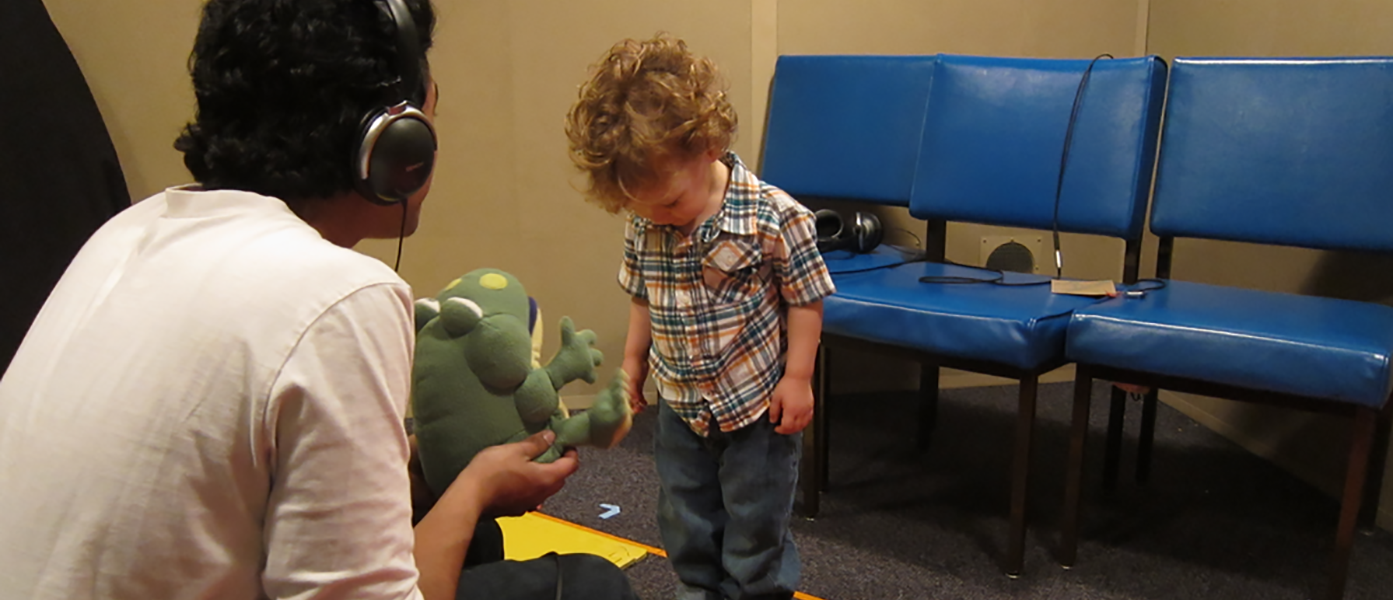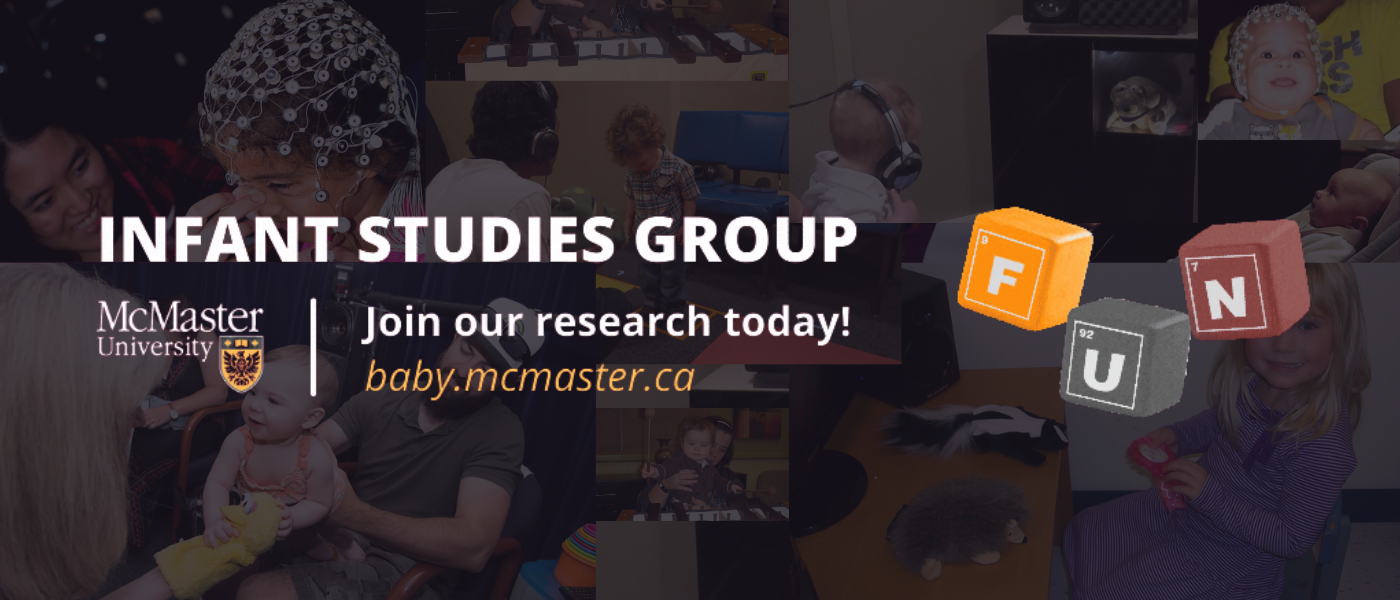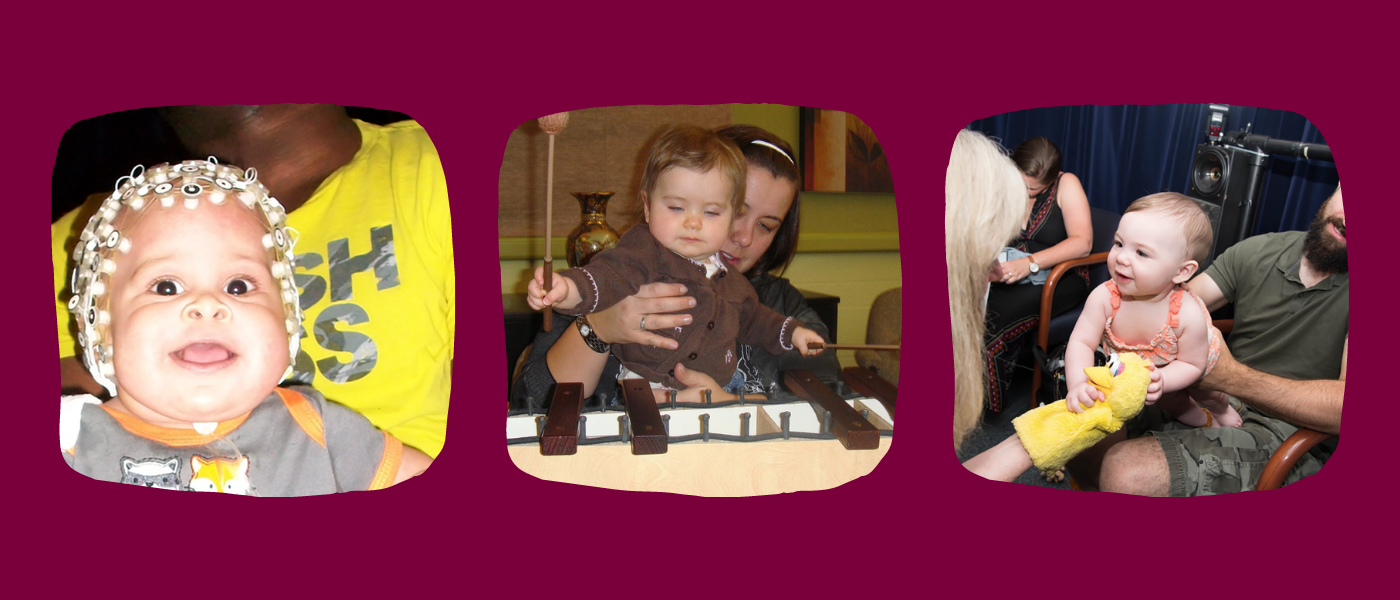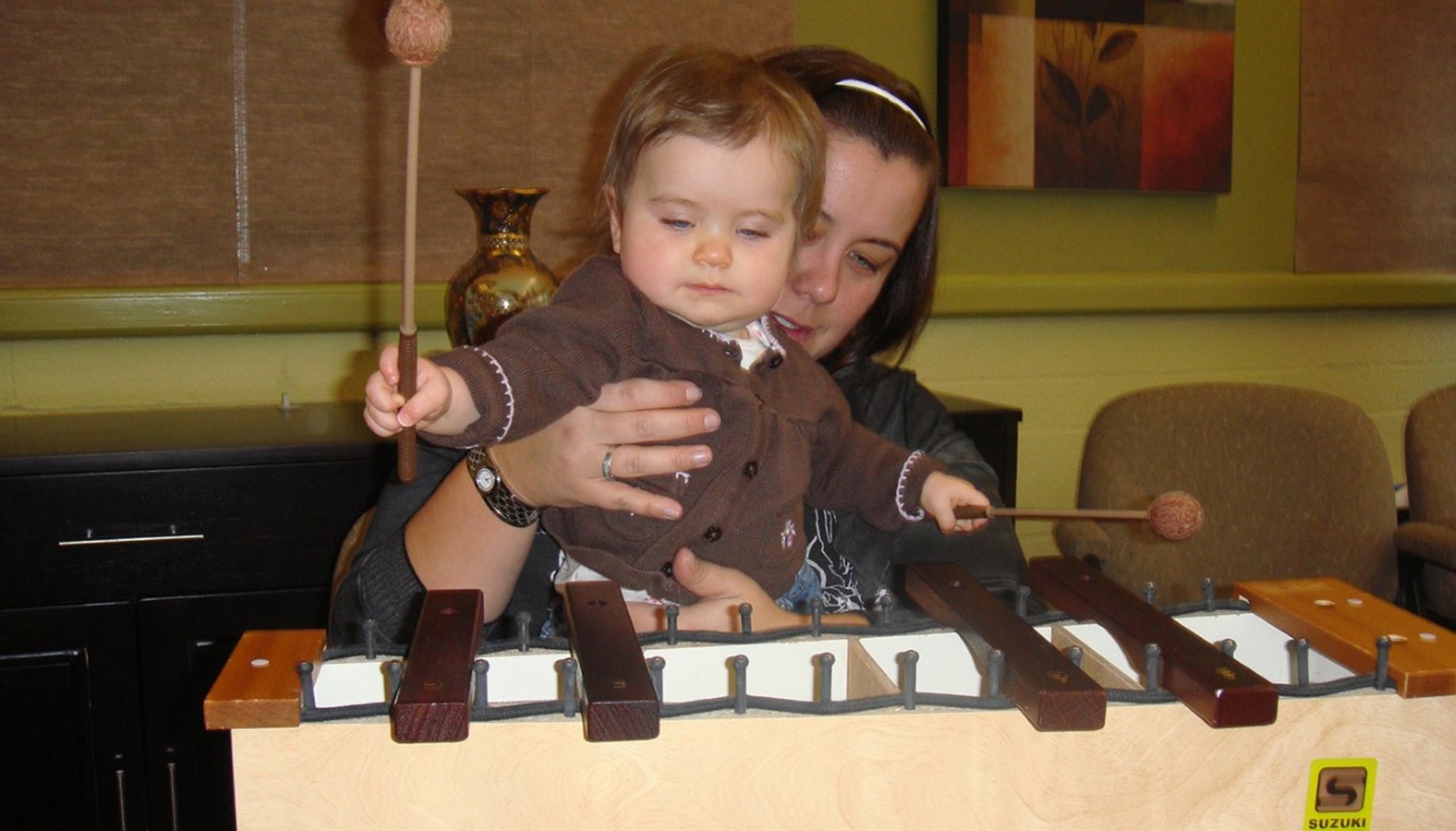Home
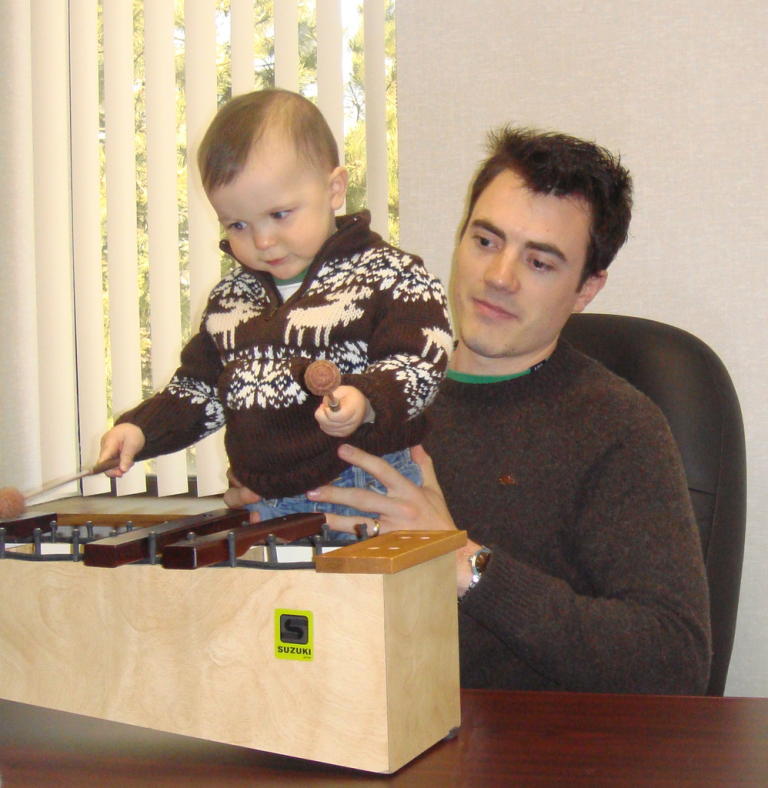
About us
McMaster University researchers have discovered from research...

Babies would rather look at faces than anything else

Infants can tell red, yellow, and green from grey at birth, but not blue

Attending interactive music classes for infants enhances brain and social development

Babies prefer happy faces to any other facial emotion
Upcoming Studies
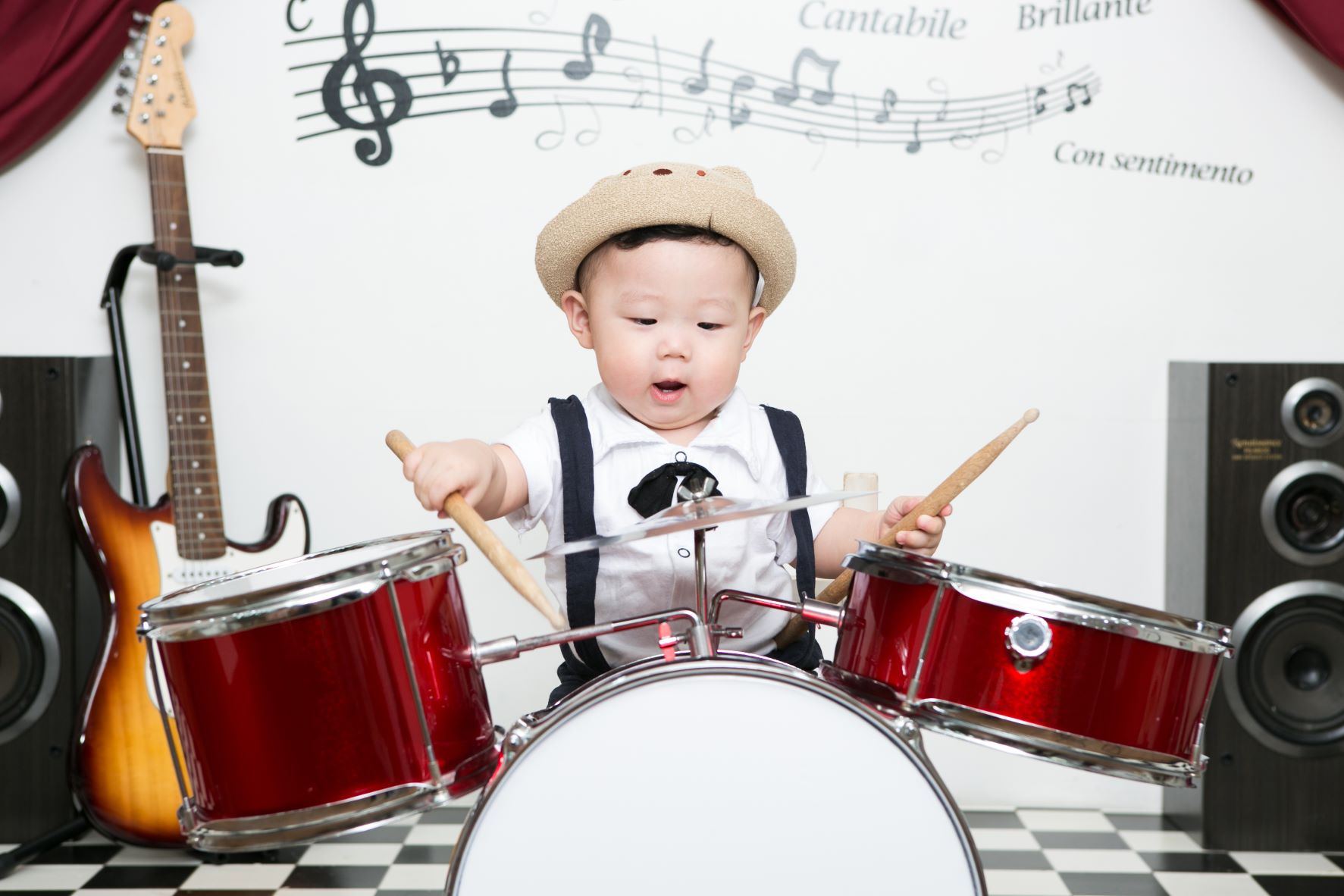
Music and Speech rhythms study
The Auditory Development Lab is looking for 5&6 – and 9&10 month-olds to participate in our on-campus music and speech rhythms study.
We are interested in how rhythm influences speech processing when babies are exposed to a non familiar language. We study this by measuring natural brain activity, using a comfortable net of sensors covered by sponges, that have been soaked in a saline and shampoo solution and placed on your child’s head. We would record about 20 minutes of your child’s natural brain activity while he/she sits on your lap and listens to a series of music and spoken sequences through a speaker in the room.
This project will help us understand the role of rhythm in the development of infants’ language and help with language impairments’ intervention.
If you and your baby are interested in participating or have any questions, please contact Laura Fernández Merino (fernndel@mcmaster.ca).
Too young for our study? Contact us anyways! We would love to add your baby to our database and let you know when your baby reaches an age we are looking for!

Visual Preference Studies for 2-14 month-olds See study poster
The Baby Lab (vision studies) at McMaster University is looking for local 2 to 14 month-old babies to participate in a variety of in-person studies!
We are investigating the role of emotional vocal sounds and music/different faces and languages/visual preferences and face processing.
If you’re interested in participating in one of our studies, or have any questions, please contact babylab@mcmaster.ca
See the attached posters for more details.

Musical Preference Study (7-18 month-olds) See Study Poster
The Auditory Development Lab is looking for 7- to 18-month-olds to participate in our on-campus musical preference study.
We are interested in whether infants show the same preference for rhythms in music as adults and older children. In this study, your baby will be able to tell us what types of rhythms they prefer by choosing different musical rhythms they listen to using a touchscreen tablet!
This study will help us understand how the perception of musical rhythm develops in infants.
If you and your child are interested in participating or have any questions, please contact Dr. Daniel Cameron (camerd7@mcmaster.ca) or auditory@mcmaster.ca
Too young for our study? Contact us anyways! We would love to add your child to our database and let you know when your child reaches an age we are looking for!

Parent-Child Interactions (4-8 month-olds)
We are starting a new sound perception study for 6-month-old infants investigating early social interactions and how they’re involved in development. One of the ways we study this is by measuring eye movements. To do this, you and your child’s eye movements will be recorded while you interact with each other. You will be asked to sing to, talk to, and/or quietly interact with your child. To measure your eye movements, you will be asked to wear glasses with eye-trackers built into them. Your infant will wear a headband that holds the eye-trackers in place on the bridge of their nose. We ask that you bring your child in their car seat. During the study, the car seat will be placed on a sturdy table and always monitored by a research assistant. You will sit across from your child, facing them, for the duration of the study.
This study would involve one/two visit(s) to McMaster and each session/visit will last between 30-60 minutes.
If you are interested in participating in one of our Music Studies or would like more information, please contact me at ripleys@mcmaster.ca or at my phone number, (506) 478-2029.

Rhythm Perception Study for 6-15 month-olds See study poster
The Baby Lab (vision studies) at McMaster University is looking for local 6 to 15 month-old babies to participate in a variety of in-person studies!
We’re investigating how musical beats are represented in 6-15 month-old infants’ brains. To do this, we will use a neuroimaging tool called fIRS to get a peek at the activity in your child’s brain.
If you’re interested in participating in one of our studies, or have any questions, please contact babylab@mcmaster.ca
See the attached posters for more details.

Online Visual Preference Study for 6-14 month-olds See study poster
The Baby Lab (vision studies) at McMaster University is looking for 6 to 14 month-old babies to participate online for a study!
Sign up to participate in a fun online study in the McMaster Baby Lab!
We are investigating whether 6 to 14-month-old infants can learn to perceive human faces of different races categorically. Your child will watch as faces of different races appear on a computer screen.
If you’re interested in participating in our study, or have any questions, please contact babylab@mcmaster.ca
See the attached poster for more details.
Learn More About our Researchers
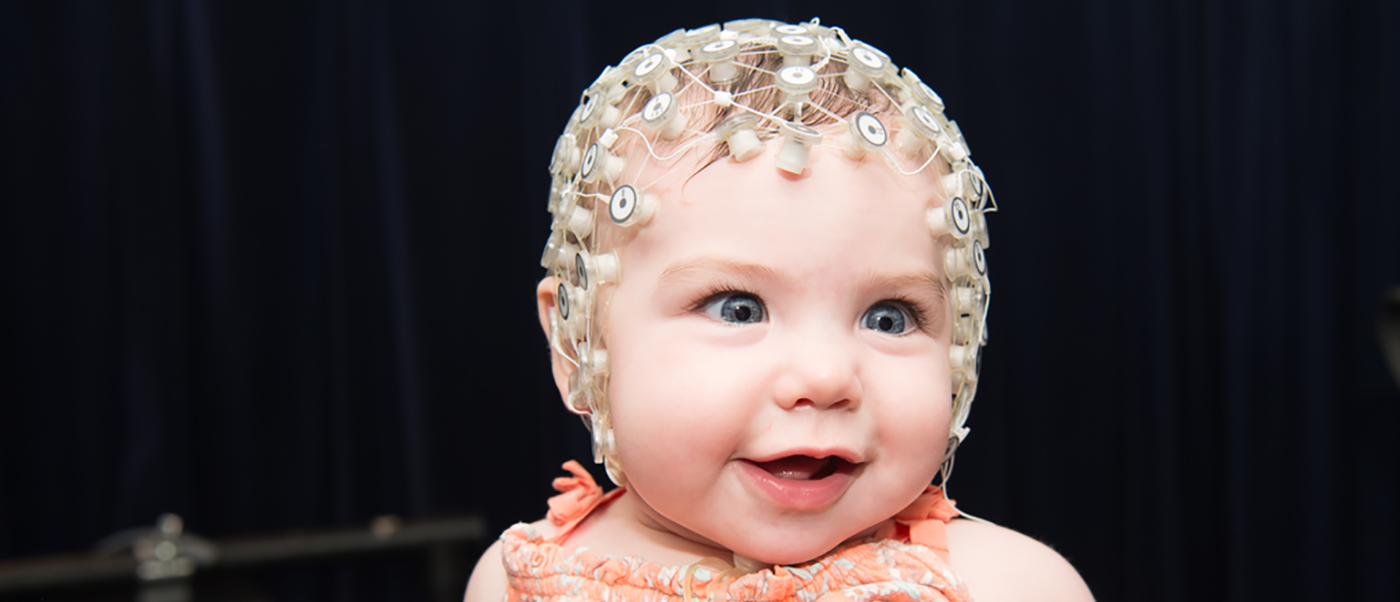
Auditory Development Lab Learn More
Dr. Laurel J. Trainor, Director
Susan Marsh-Rollo, Research Assistant
905-525-9140 x27114
marshse@mcmaster.ca,
Elaine Whiskin, Research Assistant
905-525-9140 x24797
auditory@mcmaster.ca
Under the direction of Dr. Laurel Trainor, the Auditory Development Lab studies how infants hear and respond to speech and music. We are interested in what auditory skills infants possess, how these skills develop, and how we can develop measures to identify children in early infancy who may be at risk for later language or reading problems.

The Baby Lab (Visual Development) Learn More
Dr. Gabriel(Naiqi) Xiao, Director
Research Assistant
905-525-9140 x 23130
babylab@mcmaster.ca
Dr. Gabriel (Naiqi) Xiao is studying how infants’ cognitive capacities are shaped by what they see and what they hear in everyday lives. Understanding such mechanisms that drives development will help us detect atypical development at early stages of life.

Social Development and Autism Lab Learn More
Dr. Mel Rutherford, Director
Research Assistant
905-525-9140 x26032
mcmasterautismstudy@gmail.com
http://www.earlyautismstudy.org/
Dr. Mel Rutherford is interested in how children learn about the social world around them and how they develop the skills needed to be a part of it, as well as early markers of autism. If your baby has a sibling diagnosed with an autism spectrum disorder, you are eligible for our early autism study! This research will help us develop a fast and easy screening tool for autism in a child’s first year.

Child Emotion Lab Learn More
Dr. Louis Schmidt, Director
Research Assistant
905-525-9140 x24798
Babies experience all the primary emotions of joy, anger and fear during the first months of life. Because the ability to regulate emotions plays an important role in development during infancy and early school years, Dr. Louis Schmidt’s Child Emotion Lab studies how babies regulate their emotions.


